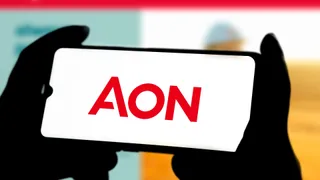Marvel victorious in royalties row over Spider-Man toy
A US court has ruled that the inventor of a Spider-Man toy cannot claim royalties from future sales of the product.
The ruling, handed down at the US Court of Appeals for the Ninth Circuit, on July 16, is the result of a near 20-year dispute between inventor Stephen Kimble and superhero comic book creators Marvel.
In 1990, Kimble created and patented a Spider-Man toy which allowed the user to shoot web-like material from the palm of their hands.
Marvel, after rejecting Kimble’s proposal to sell the toy, began producing and selling a similar product known as the Web Blaster.
Kimble sued for patent infringement at the District Court for Arizona. Despite being unsuccessful on patent infringement grounds, he was successful on a contractual claim and was awarded 3.5 per cent royalties on past, present and future sales of the toy.
In 2001, following an appeal from both parties, a settlement was made whereby Marvel obtained the patent for more than $500,000 and offered Kimble 3 per cent royalties on sales.
However, the Web Blaster toy was then expanded into further products after Marvel licensed it to toy producer Hasbro, which packaged it alongside other products.
Believing a contact had been breached, Kimble sued, but Marvel claimed that royalties would no longer be due after the expiration of the patent in 2010.
The claim was accepted.
Paul Sutton, co-founder of Sutton Magidoff LLP, in New York, said although the ruling was “disappointing” it had been anticipated by US patent and IP professionals.
Making reference to the 1964 US Supreme Court case Brulotte v. Thys Co, Sutton said Kimble should have agreed to receive a reduced royalty upon the expiration of his patent.
Brulotte vs Thys Co, ruled that license agreements involving inseparable patent and non-patent rights, as is the case with Hasbro’s partnership with Marvel, are unenforceable beyond the patent’s expiry date, unless a discounted royalty fee had already been agreed.
Sutton said: “The Ninth Circuit followed the Brulotte Supreme Court precedent, which many, including myself, hope will be modified.
“Had Kimble's license agreement properly anticipated the Brulotte decision, with provision for a reduced royalty, I believe that he would be celebrating today, rather than mourning his loss in court.”
In her judgement, circuit judge Conseulo Callahan wrote: "Kimble may have been able to obtain a higher royalty rate had the parties understood that the royalty payments would stop when the patent expired."
Sutton added that he suspected Kimble would have little chance of success in the event of an appeal.
He said: “I don't believe that Kimble's chances of success in this regard are very good. The Supreme Court would be entitled to find that Kimble (and presumably his counsel) did not properly anticipate this problem by clearly spelling out either a reduced royalty rate upon the patent's expiration, or the value to both parties of the non-patentable contribution Kimble made to Marvel.”
It is estimated Kimble has already made around $6 million in royalties from sales of the toy.
Already registered?
Login to your account
If you don't have a login or your access has expired, you will need to purchase a subscription to gain access to this article, including all our online content.
For more information on individual annual subscriptions for full paid access and corporate subscription options please contact us.
To request a FREE 2-week trial subscription, please signup.
NOTE - this can take up to 48hrs to be approved.
For multi-user price options, or to check if your company has an existing subscription that we can add you to for FREE, please email Adrian Tapping at atapping@newtonmedia.co.uk

